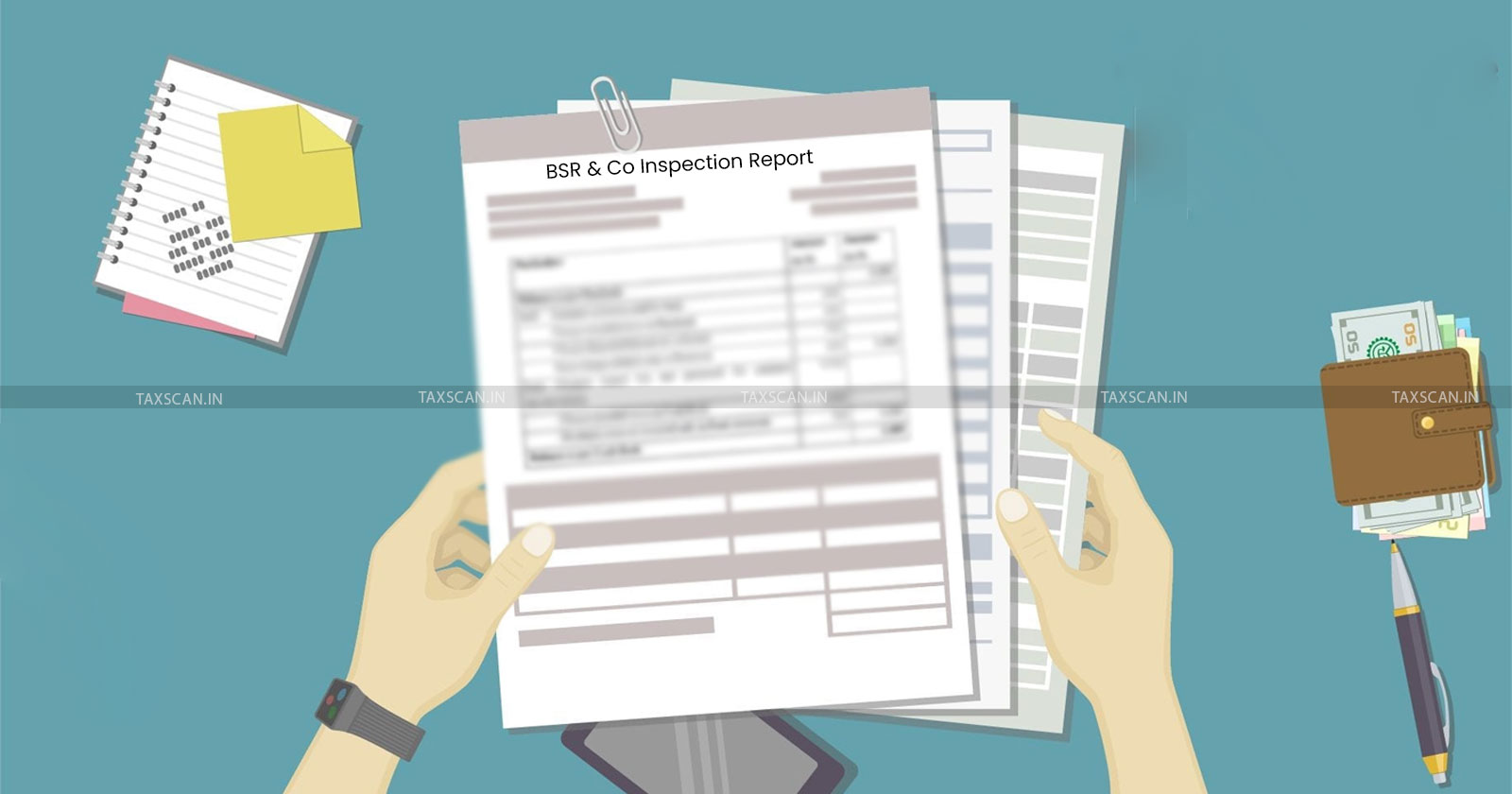NFRA releases Audit Quality Inspection Report of BSR & Co
Section 132 of the Companies Act 2013 (the Act) mandates the National Financial Reporting Authority (NFRA), inter alia, to monitor compliance with Auditing Standards

NFRA – Audit Quality Inspection Report – Audit – BSR & Co audit report – TAXSCAN
NFRA – Audit Quality Inspection Report – Audit – BSR & Co audit report – TAXSCAN
In 2024, the National Financial Reporting Authority ( NFRA ) carried out a follow-up inspection of M/s BSR & Co. LLP, a well-known Chartered Accountancy firm.
This inspection is not just about pointing fingers; it is meant to ensure that the firm is doing the best job possible under India’s laws and professional standards.
Essentially, NFRA wants to see if the firm has solid internal controls, maintains independence, and follows proper documentation practices—because all these factors help make sure audited financial statements can be trusted.
Audit Smart, Secure Strong: Lead the Digital Safety Frontier - Click here to know more
Section 132 of the Companies Act 2013 ( the Act ) mandates the National Financial Reporting Authority ( NFRA ), inter alia, to monitor compliance with Auditing Standards, to oversee the quality of service of the professions associated with ensuring compliance with such standards, and to suggest measures required for improvement in quality of their services.
What Did NFRA Look Into?
The primary areas NFRA focused on during this inspection were:
- Whether BSR addressed issues raised in the previous inspection: In particular, NFRA had suggested improvements in leadership structure, independence policies, and audit documentation practices.
- A close look at three audits the firm completed in 2022 and 2023: These three audits were chosen because they involve higher-risk areas, like revenue recognition, related party transactions, and how a company tests for potential losses on big assets (impairment).
Positive Changes and Ongoing Work
- Leadership & Governance:
NFRA previously noticed that BSR hadn’t documented its leadership framework enough. In response, the firm made its governance structure clearer, recorded meeting minutes, and improved internal communications. - Independence Policies:
Independence is a big deal—an auditor can’t provide certain consulting services to a company they also audit. BSR rolled out a policy in collaboration with their global network ( KPMG India ) that stops non-audit services for NFRA-regulated audit clients. They’ve also improved their system for checking if employees hold shares or have financial interests that could compromise independence. As a result, the firm saw fewer independence-related issues compared to last year. - Audit Documentation:
NFRA previously flagged that BSR’s electronic system let people modify documents after the lead auditor had already signed off, without rechecking. BSR responded by requiring anyone who makes changes to get another sign-off before finalizing the file. NFRA says the new approach looks promising but might need a bit more tweaking so that all edits are clearly tracked.
Audit Smart, Secure Strong: Lead the Digital Safety Frontier - Click here to know more
A Specific Red Flag: Related Party Transactions
The most concerning issue popped up in one of the three audits NFRA reviewed. In this case, the company (“Company A”) took on debt (non-convertible debentures) to fund its promoters’ personal obligations, something that could be seen as funneling the company’s money for private purposes. NFRA believes this could violate Section 185 of the Companies Act, which bans direct or indirect loans to directors. The audit files didn’t clearly show how BSR verified or reported this potential problem, raising questions about due diligence.
Reply from BSR
BSR insists it did do thorough checks: it looked at underlying documents, got required approvals from shareholders, and disclosed the deal in the financial statements. The firm also argues that Section 185 doesn’t apply here because these were “Compulsorily Convertible Preference Shares,” not loans. However, NFRA thinks the evidence and documentation in the audit file could be stronger.
Why It Matters
In the end, the role of NFRA is to protect public interest by making sure audits are reliable and transparent. BSR says it appreciates NFRA’s feedback and will keep improving its processes. Overall, while NFRA acknowledges the good progress on leadership, independence, and documentation, the agency wants BSR to be more vigilant and thorough when dealing with related party transactions. That kind of diligence ensures that companies’ finances—and thus the trust we place in them—remain secure and credible.
To Read the full text of the Order CLICK HERE
Support our journalism by subscribing to Taxscan premium. Follow us on Telegram for quick updates


